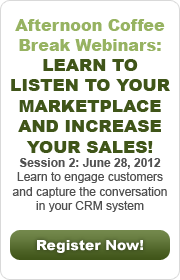Over the past few years, we have seen tremendous shift from manufacturing to services industries in North America and there are no signs of this relenting. With this growth, we are seeing imported white goods, electronics, small goods sales increasing giving rise to new “support” industries.
What does this really mean? We are seeing traditional manufacturers effectively turn into distribution houses effectively overnight. Much of the white goods and automotive equipment sold require service and maintenance support, warranty and after sales support plus a returns system. Because these industries were previously geared more towards manufacture we are seeing a need for them to shift to more mid-level, financial packages integrated with service/support applications as well as CRM needs, since their sales and management force is maturing as well.
It is recognized that many US and Canadian mid-level companies, have the infrastructure, computer literacy skills and workflow know how to actually make use of these systems. The emphasis here is affordability, flexibility and ease of use for many of these companies. They effectively want an ERP type system, not to the sophisticated levels we see in mainframe type applications, but simpler ERP systems that give them good solid workflow practices.
The principals in ERP remain the same, where you have the need to restructure business processes when redefining traditional business functions under ERP. We can use an example in a large corporate supply chain. Before ERP, a purchasing department needs to produce a procurement plan manually, based on goods-in-transport, inventory and so on, a process that usually takes several days or longer if the suppliers’ production and transportation time are taken into consideration. Following a B2B ERP implementation, the procurement plan is automated, the time to report shortened, and purchasing becomes a logistics system managed entirely by suppliers. Many economists believe this restructuring is necessary in today’s business environment.
Now in a mid sized organization where high-end fully automated B2B ERP is out of reach, they want to apply simpler workflows to achieve similar effect. In the support engineering sectors we are talking about, they have equipment that is sold and so, requires support in the community. They therefore require spare parts under existing warranty and or after-sales service and repair schemes. To manage this correctly a powerful accounting package with a totally integrated service and maintenance application is the only way to go. Here you have the ability to procure parts straight out of the service management software which automatically updates it financials , creates purchase orders and creates a tracking file so it can all be managed to the point that the equipment being serviced is managed and repaired in a timely manner and the efficiency out of the workshops is maintained. You still could have a simple B2B auto-purchase order system to speed up processes.
One such application that achieves all this is Sage Accpac ERP100/200/500 with its associated application Service Manager and SageCRM. Three distinct applications totally integrated to give many small to mid size companies a full taste of ERP type functionality that can grow with their business. If that business is fortunate enough to become corporate size, then you could spend millions and develop a fully customized ERP system or you can just keep running a solid mid sized Sage Accpac application suite at a branch level. For many integrators this is one way of “staying ahead of the game!” For more information on Technisoft Service Manager, please visit http://www.axisglobalpartners.com/alliances.asp.
Bob Reinking is the International Sales & Marketing Manager of Technisoft.



 Download our corporate brochure for more facts about us, our
clients and our solutions.
Download our corporate brochure for more facts about us, our
clients and our solutions.
 Driving Revenue Growth 1
Driving Revenue Growth 1 Satisfying Customers 1
Satisfying Customers 1